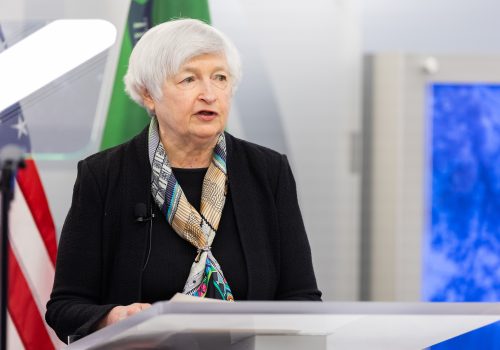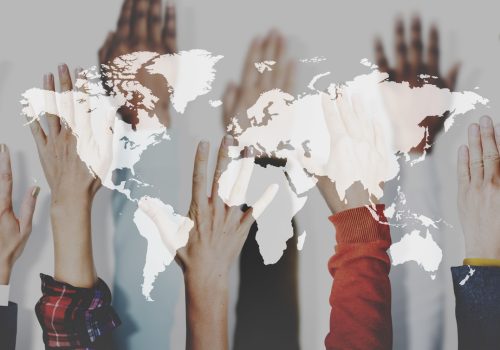Explore our data visualization
Over the past 75 years the structure of the global economy has gone through major transformations. For example, the share of G7 plus Australia and other major European economies in global GDP, trade, capital stock, and population has declined substantially between 1950 and 2019: 80% to 39% for GDP, 60% to 48% for trade, 87% to 39% for capital stock, and 47% to 12% for population.
Moreover, there are more than forty regional multilateral development banks and financial institutions, most noticeably China’s headquartered New (BRICS) Development Banks and Asian Infrastructure Investment Bank (AIIB) which were established in 2015 and 2016, respectively. The rise of state-led international development finance and projects – such as China’s BRI and its massive infrastructure, energy, and mining investments in South Asia, Middle East, and Africa – have created viable alternatives to the World Bank’s development finance and technical assistance in developing and poorer economies.
At the same time the Global South is severely underrepresented in the Bretton Woods system. For example, an average citizen of high-income countries has 15 times more representation in the World Bank than an average citizen in low-income countries. A Belgian citizen has 37 times more voting power in the World Bank than a Chinese citizen and 180 times more voting power than an Ethiopian. A Saudi citizen has 21 times more voting power in the World Bank than a Chinese and 102 times more voting power than an Ethiopian. This undemocratic and unequal voting structure largely represents the global power structure of the late 1940s. The G7 members, plus Australia and major European economies control more than 50% of the votes in the boards of the IMF and World Bank, while they represent less than 40% of global economy and 12% for world’s population. As rightly articulated by the UN Secretary-General António Guterres: “Inequality starts at the top: in global institutions. Addressing inequality must start by reforming them.”
Featured work and analysis

At the intersection of economics, finance, and foreign policy, the GeoEconomics Center is a translation hub with the goal of helping shape a better global economic future.



